Patient diagnoses, treatments, access to care discussed at inaugural meeting
David Bick, MD, clinical geneticist and a faculty investigator at the HudsonAlpha Institute for Biotechnology, has been selected by Governor Kay Ivey to serve on the newly-created Alabama Rare Disease Council. The council held its inaugural meeting August 27, 2018 in Birmingham.
“Rare disease isn’t rare. We estimate one in ten Americans has a rare disease, which translates to about 400,000 people in Alabama,” Bick said. “The Council will collect data on rare disease and help foster collaborations between stakeholder organizations across the states. Through research and by partnering with medical providers, patient advocacy groups, biotech companies and funding agencies, we can positively impact patients and families with rare disease in Alabama.” Bick, who also sees rare disease patients at the Smith Family Clinic for Genomic Medicine, brings to the council more than two decades of clinical experience, as well as expertise in the rapidly-expanding field of genomic medicine. He has published more than 70 peer-reviewed papers on genetics and genomics.
The Council is headquartered at the University of Alabama at Birmingham (UAB) School of Medicine. Bruce Korf, MD, PhD, chief genomics officer at UAB, serves as chair.
“Alabama is now at the forefront of genomic medicine,” said Korf. “We have tools such as the Alabama Genomic Health Initiative that are driving innovation and developing new knowledge of rare diseases. The council will provide a comprehensive way for us to share those advances with state leaders, medical professionals, advocacy groups and families across the state.”
At its inaugural meeting, council members discussed ways to not only help rare disease patients, but also their physicians. The council also noted how the Alabama legislature has supported the rare disease community in ways that has helped patients find a diagnosis. Lastly, members spent time discussing the landscape of care for patients with rare diseases including diagnosis, treatment, development of new therapies and insurance issues that arise.
The council will report annually to the legislature with the goal of addressing rare disease policies that will positively impact the residents of the state.
Appointees to the council will serve three-year terms. They include:
Matthew Alexander, PhD, assistant professor of pediatric neurology, UAB Department of Pediatrics and Children’s of Alabama
Kristin Anthony, president, PTEN Hamartoma Tumor Syndrome Foundation
Martina Bebin, MD, professor, UAB Department of Neurology
David Bick, MD, faculty investigator, HudsonAlpha Institute for Biotechnology, Huntsville
Katelyn Englert, CPNP, pediatric nurse practitioner, Children’s of Alabama
Mark Gillespie, PhD, Professor and Chair, Department of Pharmacology, University of South Alabama
Scott Griffin, president, Hope for Gabe Foundation
Matt Might, PhD, director of the Hugh Kaul Precision Medicine Institute, UAB
Sam Perna, DO, assistant professor, Division of Gerontology, Geriatrics and Palliative Care, Department of Medicine, UAB
Stephen Sodeke, PhD, professor of Allied Health Sciences, Tuskegee University
Legislation creating the Council was passed in 2017.
About HudsonAlpha: HudsonAlpha Institute for Biotechnology is a nonprofit institute dedicated to developing and applying scientific advances to health, agriculture, learning, and commercialization. Opened in 2008, HudsonAlpha’s vision is to leverage the synergy between discovery, education, medicine, and economic development in genomic sciences to improve the human condition around the globe. The HudsonAlpha biotechnology campus consists of 152 acres nestled within Cummings Research Park, the nation’s second largest research park. The state-of-the-art facilities co-locate nonprofit scientific researchers with entrepreneurs and educators. HudsonAlpha has become a national and international leader in genetics and genomics research and biotech education and includes more than 30 diverse biotech companies on campus. To learn more about HudsonAlpha, visit hudsonalpha.org.
